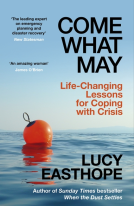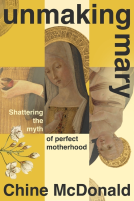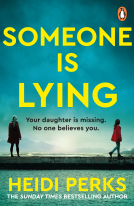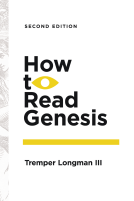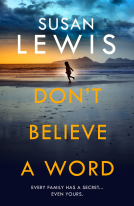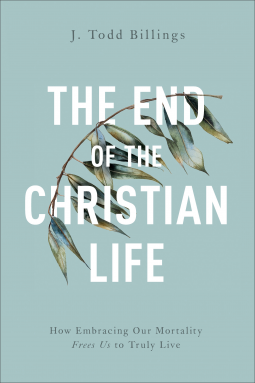
The End of the Christian Life
How Embracing Our Mortality Frees Us to Truly Live
by J. Todd Billings
This title was previously available on NetGalley and is now archived.
Send NetGalley books directly to your Kindle or Kindle app
1
To read on a Kindle or Kindle app, please add kindle@netgalley.com as an approved email address to receive files in your Amazon account. Click here for step-by-step instructions.
2
Also find your Kindle email address within your Amazon account, and enter it here.
Pub Date 15 Sep 2020 | Archive Date 18 Sep 2020
Baker Academic & Brazos Press | Brazos Press
Talking about this book? Use #EndoftheChristianLife #NetGalley. More hashtag tips!
Description
In The End of the Christian Life, Todd Billings urges Christians to resist that view. Instead, he calls us to embrace our mortality in our daily life and faith. This is the journey of genuine discipleship, Billings says, following the crucified and resurrected Lord in a world of distraction and false hopes.
Drawing on his experience as a professor and father living with incurable cancer, Billings offers a personal yet deeply theological account of the gospel's expansive hope for small, mortal creatures.
Artfully weaving rich theology with powerful narrative, Billings writes for church leaders and laypeople alike. Whether we are young or old, reeling from loss or clinging to our own prosperity, this book challenges us to walk a strange but wondrous path: in the midst of joy and lament, to receive mortal limits as a gift, an opportunity to give ourselves over to the Lord of life.
Advance Praise
“I have been waiting for this book from Todd Billings. Born from his own existential encounter with mortality and infused with his singular theological acumen, The End of the Christian Life challenges a society (and a church!) infected by both the denial of death and a culture of death. When we deny our own mortality, we also become apathetic to all the death-dealing ways we treat other people. But ultimately this book is an invitation to find life in the embrace of our mortality because of the scarred God who meets us there.”—James K. A. Smith, professor of philosophy, Calvin University; author of You Are What You Love and On the Road with Saint Augustine
Available Editions
| EDITION | Other Format |
| ISBN | 9781587434204 |
| PRICE | US$22.00 (USD) |
| PAGES | 240 |
Featured Reviews
 Rachael N, Reviewer
Rachael N, Reviewer
J. Todd Billings is one of my favourite theological authors. He writes with real warmth and rich theology; his dual experience of living with terminal cancer and being a theologian mean that we has both authority and wisdom. Reading a book about death probably shouldn't be enjoying - but this one was!
 Michael P, Reviewer
Michael P, Reviewer
Today, it came at me again. I was teaching a small group of people at our State Capitol and we were hunkered down examining James 4:13-17. James was correcting the brazen outlook that thinks we have control of our lives and our outcomes, while not having God anywhere in the equation (4:13). And part of James’s remedy was to point out that in light of our brevity (4:14) what we should say is, “If the Lord wills, we will live and do this or that” (4:15). If the Lord – the Lord Jesus Christ (1:1 and 2:1) wills, we will live…and then engage in our activities. And that thought is what “The End of the Christian Life: How Embracing Our Mortality Frees Us to Truly Live” occupies itself with in 240 softback pages. The author, J. Todd Billings, Gordon H. Girod Research Professor of Reformed Theology at Western Theological Seminary in Holland, Michigan, an ordained minister in the Reformed Church in America, and author of numerous studies, has some skin in this game as he faces his own incurable cancer. It’s not a book for the light-of-heart, but for the live-at-heart! This volume is a must-read for anyone who claims to believe in the Christ of Good Friday and Easter Morning. As Billings states it, the “strange thesis of this book is that whether you are nineteen or ninety-nine, whether you are healthy or sick, or whether the future looks bright or bleak, true hope does not involve closing over the wound of death. Instead, even the wound can remind us who we are: beloved, yet small and mortal children of God, bearing witness to the Lord of creation who will set things right on the final day.”
The author takes readers through an extended meditation on our mortality beginning with our plunge into Sheol, that dark pit that can encircle us even while living. He moves on to two views of death among ancient Christians that, with Irenaeus, sees death as a relief, and with Augustine, perceives death as the enemy. Further, Billings addresses how we mere mortals delude ourselves with dreams of invincibility and immortality, especially in the face of modern medicine. Next, he graciously takes on the prosperity gospel and its anemic cousins, showing how Christians appear to be three times as likely to grasp at extreme medical measures that will only marginally extend their lives. Finally, the author wraps up his material with a glance over the cloudy ridge into the canyon vistas beyond. In these two chapters, he comes at Near Death Experiences (NDE) from a sagacious and pastoral posture, and looks at the differences between what happens when we die, and the glorious day of Christ’s return when he raises all of his people from the dead. We are forced to contemplate what we expect to meet in the end; “The difference is between expecting oblivion and expecting God. Christian hope expects God to be the unrivaled King in the end, so that sin, the devil, and even death will be destroyed.”
Much of the material is challenging, sobering, and enlightening! There were times Billings had me in tears (especially when retelling the stories of “Jack” and “Claude”), and other times he had me walking around the house and yard thinking hard. The author doesn’t shy away from the important topics, like the Day of Judgment and why it is such good news; that NDEs are not revelatory and therefore not a guide; how the Scriptures repeatedly emphasize that Christians actually should expect a life of unexplained suffering; and that the Christian hope is not in life extension or healing, but eternal life with the Father, and the Son and the Holy Spirit, boundlessly! In the end, Billings helps us to recognize that “our mortal limits can lighten our load and deepen our joy. We are small, and the world is not on our shoulders.”
“The End of the Christian Life” is THE book to get this year, especially as the Lord of heaven and earth has given us a good reason to pause, reset, and reboot (2020 and COVID19). This would be a healthy gift for your loved ones, and for you to read yourself. Church leaders and laity should snatch up a copy as it comes out and make this manuscript a priority. Seminaries must require their students to delve deep into its pages and ponder its gravities. I highly recommend this volume, and plan to make numerous copies available to my congregation.
My gratitude goes out to the author and publisher who invited me to be part of the book’s “launch team” and supplied me with a pre-published electronic copy of the volume. They made not stipulations on me, offered me no bribes, nor promised me riches and wealth untold. Therefore, I can say unashamedly that this analysis is all mine, freely made and freely given.
 Tom M, Reviewer
Tom M, Reviewer
Very profound writing by the author on a subject touchy for so many Christians and the world as a whole. Recommended for serious reflection only.
 Educator 676205
Educator 676205
The title could be perhaps misleading. When seeing it, my wife presumed it was a jeremiad dire regarding the collapse of Western Christendom. In reality, it is an extended meditation - what is the end, the target, the consummation, the final destination of the Christian life.
Theological meditations on sickness and suffering are manifold, as are memoirs of the sick and dying, but this book fuses the two and does so astonishingly well. The author writes of the Christian hope in the midst of physical decline, pain, and hospitalisation and an eye and tongue of one theologically trained and schooled - but this is no dry monograph. ‘I am writing imperfect theology that invites the curious, the confused, and those seeking authentic hope amid death into deeper fellowship with Christ.’ Indeed, there were moments that felt less like theology, than an extended sermon or meditation, and these moments were a pure pleasure to encounter.
The book asks an important question - do we live with the realisation that we are mortal, and if so, how does this impact our life and our faith? The book raises from many different angles the difficulty of living with the Christian hope in the midst of a culture that denies the reality of death and wishes to defer thought of it whenever possible.
The author explores the place of the dead in the Old Testament, and how this vision still impacts how we speak of the departed today; how in our overwhelming focus on relationships (that will end), we make those and that we love not into God, but into idols; that the narrative of an end of our lives helps bring meaning to them (even to those who do not share the author's faith); what does eschatology look like for those in the early days of the 21st century.
One of the book's most intriguing sections was where the author explores both the world of the hospitalised and those who dwell in it, as well as the concept of the ‘liturgy’ of the present age which piece by piece, is subtly ‘encouraging us to worship our own lives and act as if we belong completely to ourselves.’
The author reminds us that for the Christian, we are first those created by God, and therefore part of an order that includes both life and death. Keeping the realism of our bounded mortality in front of us, allows us ‘to properly live and hope as creatures.’ And as such, we learn our place. We are not those who can fix all things, solve all problems, conclude our lives with nothing undone. We live instead as those dependant on God, and live out our mortality as an act of witness - we cease from being the main star of the movie of our lives, we cease being slaves of time.
The book hopes that we might be liberated from the fear of mortality, and instead live with it in our sight. ‘You are liberated to delight in the acorn, to love the neighbours forgotten in the shadows. Freed to lift our frail voices…trusting that even when our voices cease, the song will continue.’
I must admit, on opening this book my heart dropped - a book on death, in the middle of a pandemic, ugh! But it was a surprising joy to read, and I eagerly commend it.
